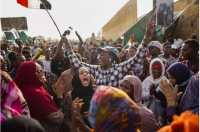 the so-called “international community”, which dedicated to the events in Sudan not even one-tenth of the attention given to the Venezuelan or Algerian crises, was awakened by the rumble of the fall of the dictator of Khartoum. It was as if Western, Arab and African governments understood suddenly that a democratic revolution in Sudan may have devastating effects on the stability of neighbouring countries and on the regional balance of power, entailing feverish political and diplomatic agitation.
the so-called “international community”, which dedicated to the events in Sudan not even one-tenth of the attention given to the Venezuelan or Algerian crises, was awakened by the rumble of the fall of the dictator of Khartoum. It was as if Western, Arab and African governments understood suddenly that a democratic revolution in Sudan may have devastating effects on the stability of neighbouring countries and on the regional balance of power, entailing feverish political and diplomatic agitation.
Games Without Borders
15.07.2019 | by Nicole Guardiola
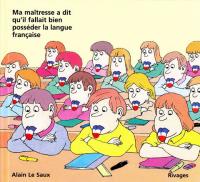 Reflecting on glotophobia also allows us to question the linguistic and cultural imaginaries of a
post-colonial or decolonial perspective. We must rethink, again, discourses that rely on a political or
ideological territorialisation sustained by references to the purity of origin, of language, of religion, or of
ideological dogma.
Reflecting on glotophobia also allows us to question the linguistic and cultural imaginaries of a
post-colonial or decolonial perspective. We must rethink, again, discourses that rely on a political or
ideological territorialisation sustained by references to the purity of origin, of language, of religion, or of
ideological dogma.
To read
13.07.2019 | by Graça dos Santos
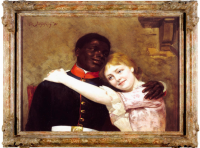 The authors were confronted with the lack of information on the representation of black men and women in European painting, which led them to very direct and immediate questions: who were the people represented? What were the motivations for representing them? And why did black people in European painting rarely have individualized identities?
The authors were confronted with the lack of information on the representation of black men and women in European painting, which led them to very direct and immediate questions: who were the people represented? What were the motivations for representing them? And why did black people in European painting rarely have individualized identities?
To read
10.07.2019 | by Ana Paula Rebelo Correia
 What remains of the Hotel Império, beyond an Asian allegory of Portugal? The clustered ruins of a building evoke the memory of an ancient, faded splendour which survives only in residues. But it is more an aesthetic image than a documented, known fact. Haunted ghosts survive of a house, more imagined than real, that never fully belonged in a Macau now disputing its precarious future through an iniquitous debate with a crushing and soulless modernization. The ideal conditions, then, to open up space for a pungent and inexorable nostalgia. It is destined to be the only thing to remain.
What remains of the Hotel Império, beyond an Asian allegory of Portugal? The clustered ruins of a building evoke the memory of an ancient, faded splendour which survives only in residues. But it is more an aesthetic image than a documented, known fact. Haunted ghosts survive of a house, more imagined than real, that never fully belonged in a Macau now disputing its precarious future through an iniquitous debate with a crushing and soulless modernization. The ideal conditions, then, to open up space for a pungent and inexorable nostalgia. It is destined to be the only thing to remain.
Afroscreen
09.07.2019 | by Roberto Vecchi
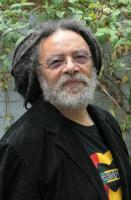 My talk will discuss the altered ecology of belonging that has emerged into Africa’s diasporas during the decades since “Black Atlantic” was published. My discussion of the problems that this has raised will centre on several key themes. They include the fortification of the overdeveloped countries, the impact of new communicative technologies on conceptions of solidarity, relationality and mutuality, the resurgence of extractive capitalism, and the export of generic racial identities from the USA to the whole world.
My talk will discuss the altered ecology of belonging that has emerged into Africa’s diasporas during the decades since “Black Atlantic” was published. My discussion of the problems that this has raised will centre on several key themes. They include the fortification of the overdeveloped countries, the impact of new communicative technologies on conceptions of solidarity, relationality and mutuality, the resurgence of extractive capitalism, and the export of generic racial identities from the USA to the whole world.
I'll visit
08.07.2019 | by vários
 Noting that this subject is now everywhere is to suggest that it has transcended the politico-museological sphere to become part of the public and media space. This is relatively positive, particularly if it is accompanied by actual interventions and insightful debate. Yet the process, which was never going to be straightforward, has become more complex, and acquired new problematics.
Noting that this subject is now everywhere is to suggest that it has transcended the politico-museological sphere to become part of the public and media space. This is relatively positive, particularly if it is accompanied by actual interventions and insightful debate. Yet the process, which was never going to be straightforward, has become more complex, and acquired new problematics.
To read
08.07.2019 | by António Pinto Ribeiro
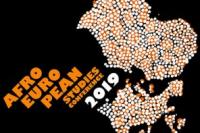 The title of the conference incorporates the tensions, ambiguities and paradoxes of Blackness in Europe. At the same time as black histories, cultures and social conditions are made invisible in hegemonic accounts on Europe, there is a hypervisibility and presence of black stereotyping in European popular culture. Also, while the concept of race has largely disappeared from political, sociological and administrative discourses (in continental Europe), and while the disengagement with institutional and structural racism has been reframed in new capitalist post racial rhetorics, racial markers still have currency, and black bodies continue to be invoked as either tolerated guests at best, or threatening intruders at worst. The consequence is the practice of “embodying an identity that is declared impossible even though lived by millions”, namely as non-white Europeans, and specifically as Black Europeans. This identity has become even more conditioned by a new mainstreaming of right-wing discourses and the tightening immigrant and refugee policies that affect people of African descent.
The title of the conference incorporates the tensions, ambiguities and paradoxes of Blackness in Europe. At the same time as black histories, cultures and social conditions are made invisible in hegemonic accounts on Europe, there is a hypervisibility and presence of black stereotyping in European popular culture. Also, while the concept of race has largely disappeared from political, sociological and administrative discourses (in continental Europe), and while the disengagement with institutional and structural racism has been reframed in new capitalist post racial rhetorics, racial markers still have currency, and black bodies continue to be invoked as either tolerated guests at best, or threatening intruders at worst. The consequence is the practice of “embodying an identity that is declared impossible even though lived by millions”, namely as non-white Europeans, and specifically as Black Europeans. This identity has become even more conditioned by a new mainstreaming of right-wing discourses and the tightening immigrant and refugee policies that affect people of African descent.
I'll visit
24.06.2019 | by vários
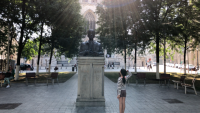 Eurocentric power needs to create narratives about colonial history in order to control interpretations of it. Concepts of law and justice have played an important role in this. Also today, the idea of justice is used to approve violent migratory control policies, including the aggressive persecution, detention, and deportation of persons.
Eurocentric power needs to create narratives about colonial history in order to control interpretations of it. Concepts of law and justice have played an important role in this. Also today, the idea of justice is used to approve violent migratory control policies, including the aggressive persecution, detention, and deportation of persons.
To read
22.06.2019 | by vários
 Why does Europe (still) have such trouble showing a coherent attitude in the face of discourses which legitimate racism and xenophobia? What are the masks that stop it from accepting its colonial past and understanding, once and for all, that diasporas are part of the richness of the European cultural map?
Why does Europe (still) have such trouble showing a coherent attitude in the face of discourses which legitimate racism and xenophobia? What are the masks that stop it from accepting its colonial past and understanding, once and for all, that diasporas are part of the richness of the European cultural map?
To read
22.06.2019 | by Felipe Cammaert
 had brought a dry twig with me from the bushes I hid in for a couple of days. Everytime I hear there is a fire on that island, I just find myself thinking about it... Also brought a couple of snail shells from the same bushes. Why? If the day comes that I forget about it, they would remind me what it is to move forward... even at the speed of a snail..."
had brought a dry twig with me from the bushes I hid in for a couple of days. Everytime I hear there is a fire on that island, I just find myself thinking about it... Also brought a couple of snail shells from the same bushes. Why? If the day comes that I forget about it, they would remind me what it is to move forward... even at the speed of a snail..."
To read
16.06.2019 | by Sinem Taş
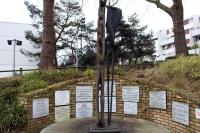 The difficult subject of a politically null war and the traumatic end of the imperial cycle have tended to produce a memory of the colonial war which – though often stressing its “tragic” and “useless” dimension – still emphasizes participation in it as a question of duty. This casts the figure of the veteran as a victim, either of the “winds of history”, or as having been forced to fight.
The difficult subject of a politically null war and the traumatic end of the imperial cycle have tended to produce a memory of the colonial war which – though often stressing its “tragic” and “useless” dimension – still emphasizes participation in it as a question of duty. This casts the figure of the veteran as a victim, either of the “winds of history”, or as having been forced to fight.
To read
16.06.2019 | by Miguel Cardina
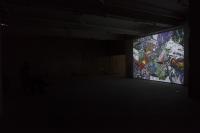 The exhibition Lost Lover speaks about the political, historical and geographical conditions through which knowledge is produced and controlled. The screening program assembled by Lara Koseff was originally presented in Rio de Janeiro, in the courtyard of Lanchonete, now in Rampa, Porto.
In the front room, 11 single-channel video pieces are projected in a loop. The authors, who are mostly from South Africa, confront us with the abandon of fear, thus calling to action topics that are often and strategically silenced.
The exhibition Lost Lover speaks about the political, historical and geographical conditions through which knowledge is produced and controlled. The screening program assembled by Lara Koseff was originally presented in Rio de Janeiro, in the courtyard of Lanchonete, now in Rampa, Porto.
In the front room, 11 single-channel video pieces are projected in a loop. The authors, who are mostly from South Africa, confront us with the abandon of fear, thus calling to action topics that are often and strategically silenced.
I'll visit
12.06.2019 | by Eduarda Neves
 Hartman offers new methodological pistes for literary critics working in archives and shows how literary studies can learn from the wayward lives of women like Esther Brown to expand its understandings of creative practices. Reading Hartman reminds us of the political imperative to interrogate spaces and structures of oppression, confinement and conformism from the perspective – speculative if necessary – of those who resist them.
Hartman offers new methodological pistes for literary critics working in archives and shows how literary studies can learn from the wayward lives of women like Esther Brown to expand its understandings of creative practices. Reading Hartman reminds us of the political imperative to interrogate spaces and structures of oppression, confinement and conformism from the perspective – speculative if necessary – of those who resist them.
To read
04.06.2019 | by Alexandra Reza
 The increasing centrality of the voices of black and Afro-descendent people in Portugal, speaking out against racism and the inequality of opportunity that it generates, is the best guide to how to reconfigure an ancestry that deserves to be revived and reinvented.
The increasing centrality of the voices of black and Afro-descendent people in Portugal, speaking out against racism and the inequality of opportunity that it generates, is the best guide to how to reconfigure an ancestry that deserves to be revived and reinvented.
To read
26.05.2019 | by Bruno Sena Martins
 Os “Congos” foram vários e o “Congoísmo” revelou-se maleável na forma e conteúdo, mas estável na utilidade. Assim sendo, a invocação da sua história e da sua memória só pode ser muito cautelosa. Aspecto importante, requer ainda que se considere a sua história não-europeia, a sua natureza transnacional, transregional e transatlântica, mas também no próprio continente africano. Que não se anule diversidade de actores, instituições, “discursos” e imagens, motivações e interesses.
Os “Congos” foram vários e o “Congoísmo” revelou-se maleável na forma e conteúdo, mas estável na utilidade. Assim sendo, a invocação da sua história e da sua memória só pode ser muito cautelosa. Aspecto importante, requer ainda que se considere a sua história não-europeia, a sua natureza transnacional, transregional e transatlântica, mas também no próprio continente africano. Que não se anule diversidade de actores, instituições, “discursos” e imagens, motivações e interesses.
To read
21.05.2019 | by Miguel Bandeira Jerónimo
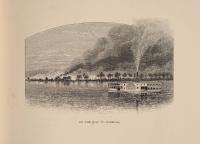 The title of the exhibition refers to Trotsky’s theory of uneven and combined development and, particularly, to its rereading by Harvey through the concept of “uneven geographical development”. If Marx considers that space is annihilated by time in the capitalist system, The Unbalanced Land carries out a reflection on the modalities of space production and the spatio-temporal relations in late capitalism.
The title of the exhibition refers to Trotsky’s theory of uneven and combined development and, particularly, to its rereading by Harvey through the concept of “uneven geographical development”. If Marx considers that space is annihilated by time in the capitalist system, The Unbalanced Land carries out a reflection on the modalities of space production and the spatio-temporal relations in late capitalism.
I'll visit
21.05.2019 | by Raquel Schefer
 I have met Antonio in the town I was staying at while walking the Camino de Santiago pilgrimage route. We were the only two staying in town that night since it is rare to walk the route during that time of the year. He invited me over for the dinner he prepared for himself. When I asked what I drink should bring for dinner he said "I will drink water, you can bring whatever you like for yourself".
I have met Antonio in the town I was staying at while walking the Camino de Santiago pilgrimage route. We were the only two staying in town that night since it is rare to walk the route during that time of the year. He invited me over for the dinner he prepared for himself. When I asked what I drink should bring for dinner he said "I will drink water, you can bring whatever you like for yourself".
Face to face
15.05.2019 | by Sinem Taş
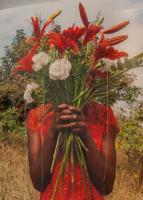 Reflection on the transgenerational dimensions of the notion of memory is, however, of course, much earlier than Hirsch’s proposal. In particular in Holocaust literature, the construction of a memory of the “not-lived”, characteristic of the postmemorial gesture, builds up a model that can be abundantly traced and that, precisely due to the power of the paradigm of confrontation with the Holocaust or the ensemble of studies on violence, trauma and memory, deserves particular attention.
Reflection on the transgenerational dimensions of the notion of memory is, however, of course, much earlier than Hirsch’s proposal. In particular in Holocaust literature, the construction of a memory of the “not-lived”, characteristic of the postmemorial gesture, builds up a model that can be abundantly traced and that, precisely due to the power of the paradigm of confrontation with the Holocaust or the ensemble of studies on violence, trauma and memory, deserves particular attention.
To read
04.05.2019 | by António Sousa Ribeiro
 I believe the society is not yet ready for some things. For example when people come close to caress him, the look of love on their faces changes to pitiness. The fact that one is disabled does not mean they cannot understand what's going on around them. I don't blame people for this matter though they need to realize pitying doesn't help at all.''
I believe the society is not yet ready for some things. For example when people come close to caress him, the look of love on their faces changes to pitiness. The fact that one is disabled does not mean they cannot understand what's going on around them. I don't blame people for this matter though they need to realize pitying doesn't help at all.''
Face to face
04.05.2019 | by Sinem Taş
 'Life's too short to invent problems... It is quite likely that not everything will be the way we want. Everything that happens to us is actually beautiful. All of it! Sadness. sickness, even losing a loved one is beautiful! Cause we learn from these experiences.
'Life's too short to invent problems... It is quite likely that not everything will be the way we want. Everything that happens to us is actually beautiful. All of it! Sadness. sickness, even losing a loved one is beautiful! Cause we learn from these experiences.
Face to face
27.04.2019 | by Sinem Taş